Aliquots
-
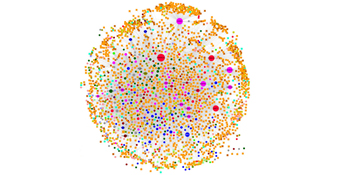
Drug discovery clues in network map
Vanderbilt investigators have constructed a network map that could guide the development of new targeted cancer therapies. Read MoreAug 5, 2014
-
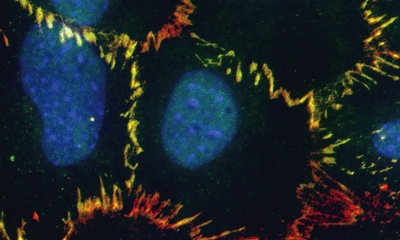
Anti-inflammatory protein “rheostat” sheds light on leaky blood vessels
Vanderbilt researchers have discovered that the protein CRADD counteracts inflammatory injury to endothelial cells, which could assist the development of new therapies for inflammatory vascular disorders. Read MoreAug 1, 2014
-

New target for breast cancer therapy
The protein MTBP is overexpressed in an aggressive type of breast cancer, and it regulates another protein implicated in many cancer types, suggesting that it may be a good target for new therapeutics. Read MoreJul 31, 2014
-

Treatments for frog fungus
The fungicide amphotericin B may be a useful treatment for a frog fungus that is killing amphibians worldwide. Read MoreJul 25, 2014
-
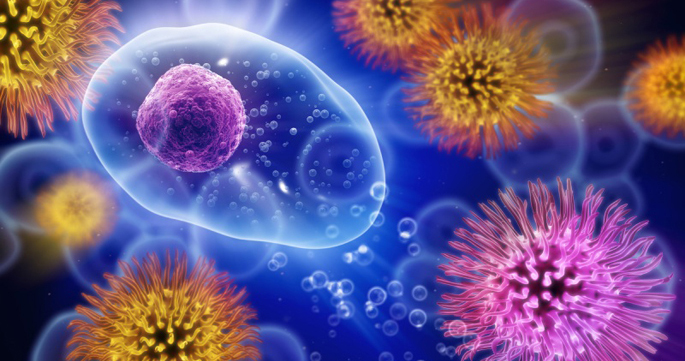
Natural killer cells don’t clear HMPV
Understanding how the immune system responds to the respiratory virus HMPV is crucial for developing vaccines and anti-viral treatments. Read MoreJul 23, 2014
-

Reversing stress-induced anxiety
Augmenting the signals of natural “endocannabinoids” in the brain may be a promising approach for treating mood and anxiety disorders. Read MoreJul 21, 2014
-
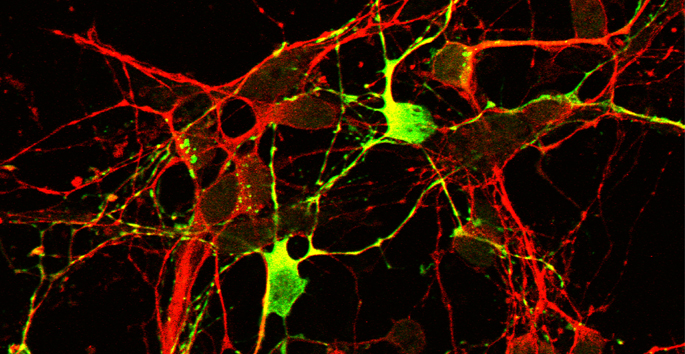
Neural receptor for reovirus
A newly identified receptor allows mammalian reovirus to infect neurons, shedding light on factors important for viral encephalitis. Read MoreJul 18, 2014
-

Regulating immune regulators
Understanding how to control the generation of regulatory T cells could have important implications for treating autoimmunity and cancer. Read MoreJul 17, 2014
-

Factor impacts bone toughness
The factor ATF4 has a role in the toughness of bone and its resistance to fracture, suggesting new therapeutic targets. Read MoreJun 16, 2014
-

How ABC transporters move molecules
New views of how transporters move molecules across cell membranes are key to understanding how these proteins impact tumor cell drug resistance and inherited diseases such as cystic fibrosis. Read MoreJun 13, 2014
-

Exploring Wilms tumor race disparity
Unique molecular "fingerprints" could explain the disparity in Wilms tumor incidence and point to novel, race-specific therapeutic targets. Read MoreMay 29, 2014
-

Respiratory virus vaccine candidate
Virus-like particles containing a protein from human metapneumovirus are a promising vaccine candidate for this respiratory virus. Read MoreMay 27, 2014
-

Repair protein’s DNA recognition motif
Insights into the workings of DNA damage response proteins such as SMARCAL1 could suggest new ways to improve genome integrity and prevent cancer. Read MoreMay 23, 2014
-
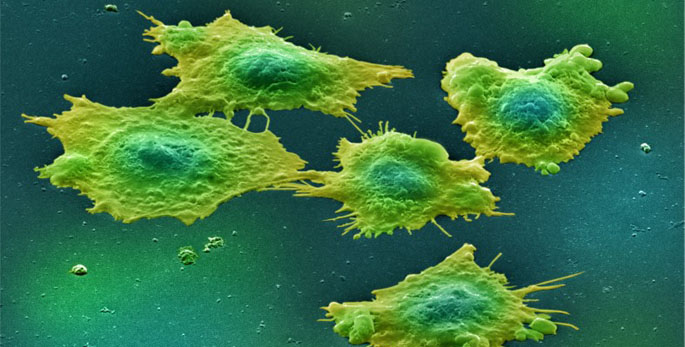
Cellular forces aid tumor invasion
The contractile machinery inside tumor cells increases invasive properties, suggesting it might be a good target to inhibit cancer cell spread. Read MoreMay 22, 2014
-

CaMKII enhances insulin secretion
The protein CaMKII acts as a calcium sensor in a positive feedback pathway that enhances glucose-stimulated insulin secretion. Read MoreMay 14, 2014
-

Normalizing calcium flux to treat atrial fibrillation
A particular anti-arrhythmia drug provides a targeted treatment for certain forms of atrial fibrillation. Read MoreMay 12, 2014
-

Bypassing DNA damage
Studies of a human polymerase that replicates DNA have provided a complete kinetic and structural framework for understanding how the enzyme accurately bypasses DNA damage. Read MoreMay 9, 2014
-

PET probe detects dying tumor cells
A novel PET imaging probe detects tumor cell death in vivo and could be useful for personalizing cancer medicine. Read MoreMay 8, 2014
-

Potential mechanism for myeloma drug’s variable toxicity
A genetic variant is associated with toxicity of the chemotherapy drug melphalan, and could guide individualized dosing for the medication. Read MoreApr 30, 2014
-
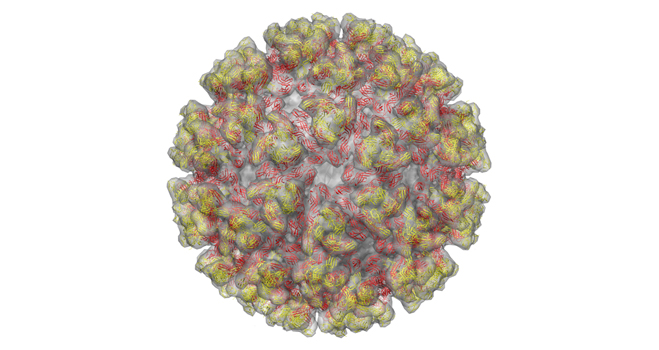
Target cell entry to halt Chikungunya virus
Understanding how chikungunya virus binds to and enters cells offers a new target for antiviral medications. Read MoreApr 28, 2014